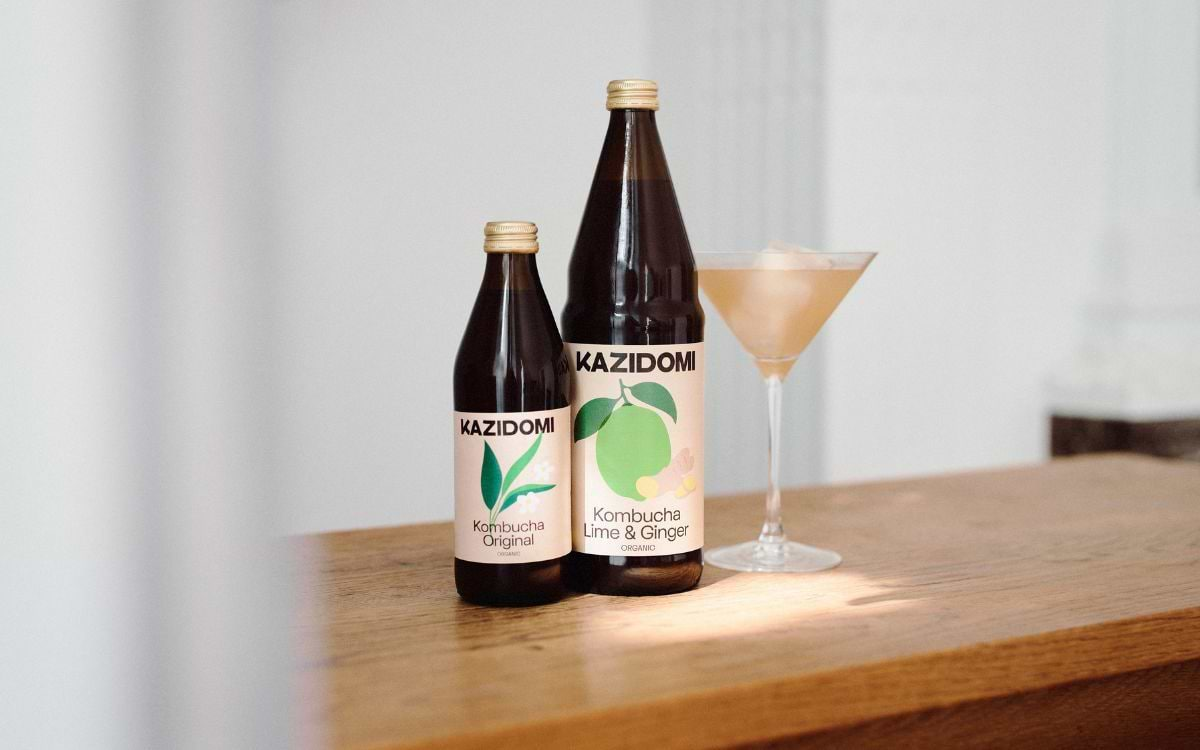
Discover all the secrets of miso: origin, varieties, benefits, recipes, and tips for cooking or making it at home. A complete guide to this Japanese fermented paste.

The organic kefir and kombucha are two fermented drinks with numerous health benefits. Rich in probiotics, antioxidants, and essential nutrients, they are increasingly popular among those looking to support their gut microbiota and reduce their intake of sugary sodas.
But what are the differences between kefir and kombucha? How are they made? Which one is best suited to your needs? This article will guide you in choosing the ideal fermented drink based on your expectations and lifestyle.
Kefir is a fermented drink available in two main varieties:
Kefir is particularly rich in probiotics, beneficial microorganisms that promote good digestion and strengthen the immune system. It helps restore gut flora, alleviates digestive issues (such as bloating and constipation), and may contribute to better nutrient absorption.
Water kefir has a slightly tangy and fizzy taste, with a very low sugar content (less than 0.5 g per 100 mL). Milk kefir, on the other hand, has a creamier texture and a mild flavor, similar to plain yogurt.
Making kefir requires some patience and care. Kefir grains need regular maintenance to ensure proper fermentation, making it more suited to fermentation enthusiasts. Fortunately, there are many commercial versions available, including our Kazidomi organic kefirs.
Kombucha is a fermented drink made from sweetened black or green tea, fermented using a culture of bacteria and yeast called SCOBY (Symbiotic Culture Of Bacteria and Yeast). Many variations are available, flavored with fruits, herbs, or spices to enhance its taste.
Kombucha is an excellent source of probiotics and organic acids, which aid digestion, boost metabolism, and support liver function. Thanks to its antioxidants, it helps combat oxidative stress and protects cells against premature aging.
Kombucha is sweeter than kefir, with a moderate sugar content (between 2 and 4 g per 100 mL). It has a slightly tangy and fizzy taste, often compared to cider or apple cider vinegar.
Kombucha is widely available in ready-to-drink bottles in health food stores and supermarkets. This makes it a great option for those looking to reduce their soda consumption without making their own fermented drinks at home.
Choosing between kefir and kombucha depends on several factors.
If you're looking for a low-sugar drink for daily consumption, kefir is the best choice. If you prefer a smoother, ready-to-drink, and fizzy beverage, ideal as an aperitif, kombucha will be your best ally.
Whether you choose kefir or kombucha, both drinks offer significant health benefits thanks to their richness in probiotics and antioxidants. They are excellent for improving digestion, strengthening the immune system, and replacing industrial sodas.
No, these drinks contain only trace amounts of alcohol (less than 0.5%) from fermentation, making them safe for most consumers.
Yes, in moderation (one glass per day), they contribute to good digestion and a balanced gut microbiota.
Yes, as it is made from black or green tea. The caffeine content is low but may affect those sensitive to caffeine.
Mostly, yes! Fermentation reduces lactose content, but highly sensitive individuals should test their tolerance.
Kefir is simpler to make and requires fewer ingredients. Kombucha requires a SCOBY and more precise fermentation monitoring.
Yes, with its fizzy and fruity taste, it helps reduce sugar-laden drink consumption.
No, it is naturally lactose- and gluten-free, unlike milk kefir, which contains traces of dairy.
Commercially available versions last several weeks.
No, kefir contains a greater diversity of lactic acid bacteria, while kombucha is rich in organic acids.
Both! Kefir promotes a balanced gut microbiota, while kombucha provides additional antioxidant benefits.
Kazidomi is an online supermarket for healthy and sustainable products that is up to 50% off through an annual membership system.
Recevez toutes les news et les offres Kazidomi en exclusivité !